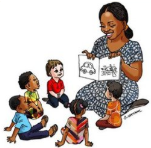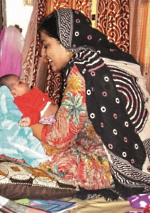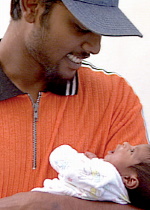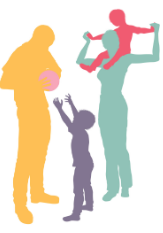 Nurturing care for ECD materials
Nurturing care for ECD materials
Working with national governments in Kenya, Mozambique and South Africa, PATH has developed or updated counseling aids, reporting tools, and information, education, and communication materials to facilitate attention to all aspects of nurturing care in maternal and child health services at facility- and community-levels. View, download and print the materials (here).
 Providing nurturing care for caregivers in conflict settings
Providing nurturing care for caregivers in conflict settings
In response to the Syrian refugee crisis, the International Rescue Committee (IRC) adapted the 'Reach Up and Learn' home visiting program to train refugee and host community workers on how to promote opportunities for early learning and responsive caregiving during visits to caregivers in Syria, Jordan and Lebanon. Their new report provides practical guidance for those involved in designing, delivering, testing and scaling home visiting programs in crisis- and conflict-affected settings. You'll find links to the report and two short videos
(here).
 Integrating early childhood development into programs for children orphaned or made more vulnerable by HIV
Integrating early childhood development into programs for children orphaned or made more vulnerable by HIV
Written for USAID and PEPFAR implementing partners, with a focus on OVC practitioners, this is a user-friendly compendium of current resources and job aids for early childhood care, stimulation and education. It begins with an overview of the importance of the early childhood period, and specifically its importance for HIV-impacted infants, children and families. This section grounds the rationale in the nurturing care components. The compendium describes of tools, job aids, visuals and packages that can address components of nurturing care. Coordinating Comprehensive Care for Children, or 4Children, is a 5-year, USAID-funded project (more).
 Caring for children’s healthy growth and development
Caring for children’s healthy growth and development
Published by WHO and UNICEF, this training package equips community health workers with the knowledge and skills to counsel families to:• breastfeed young children and give their children nutritious complementary foods;
• play and communicate with their children to help them learn and to strengthen their relationships with their children;• prevent childhood illnesses and injury; and
• recognize signs of illness and take their children to a health facility.




 Care for child development: improving the care for young children
Care for child development: improving the care for young children Resource modules for home visitors
Resource modules for home visitors